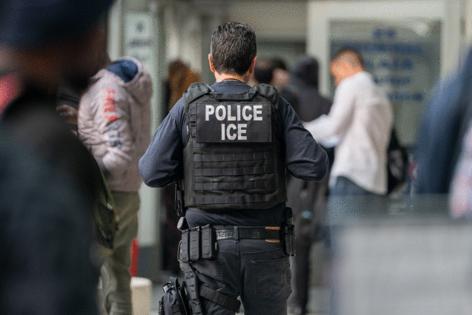Homestead, Florida, votes to join immigration enforcement partnership with ICE
Published in News & Features
MIAMI — The city of Homestead, whose numerous nurseries and farms run on migrant labor, has become one of the latest Miami-Dade municipalities to partner with the Trump administration on immigration enforcement.
Last week, the City Council voted in favor of entering a 287(g) agreement with Immigration and Customs Enforcement, which will authorize Homestead’s police department to question, arrest and detain people suspected of violating immigration laws.
Homestead joins Coral Gables, West Miami, Miami Springs and other Miami-Dade County cities in participating in an ICE partnership. The agreement raises questions about the future of community policing in Homestead, which is 68% Hispanic and 40% foreign-born, as well as alarm that immigrant residents will be too afraid to participate in the local economy.
Miami-Dade officials in cities that have approved the program have said that local police forces will not be going after people just because they are undocumented and deny that any racial profiling will take place. Homestead Mayor Steven Losner said that he understands that there is fear in the Homestead community ahead of the agreement, but that it is “unfounded.”
“In my view, this is an agreement to train and exist. It does not create a hunting license,” Losner said at the Wednesday city council meeting.
But critics, including Homestead-based group WeCount!, argue that the partnership is unnecessary and harmful, and will make communities less safe because immigrants will become too afraid to report crimes. They also point to academic studies and government investigations that show that 287(g) programs have led to racial profiling and discrimination towards Latinos in certain communities.
“This is terrible policy and will undermine community trust,” said Oscar Londoño, co-executive director of the group, which represents thousands of local immigrant workers.
There are over 200 active 287(g) agreements in Florida, the most out of any state in the union. Under state law, agencies operating county jails must enter 287(g) agreements with ICE. But municipal governments are not explicitly required to join these partnerships. However, Gov. Ron DeSantis and Florida Attorney General James Uthmeier have put pressure on officials, arguing that cities are mandated to participate in 287(g) agreements because of the state’s sanctuary city law.
Londoño pointed out that Homestead does not run a detention facility and is not legally required to join the program. He urged the city to follow South Miami’s lead and seek judicial clarification on whether participation is mandatory, especially amid pressure from Gov. Ron DeSantis.
Councilwoman Jennifer Bailey, who voted no, said she wished the vote could have been delayed.
“If it’s not something that we legally need to do, I would just like a little more, a little more information to see what that clarification is,” she said.
Many council members directed questions on what role Homestead Police Department would have in conjunction with ICE officers to Police Chief Mario Knapp.
Knapp told the council that police are tasked with public safety and that he has a vested interest in ensuring that no one is afraid to call the police, and that the partnership would not limit that when asked by Councilman Tom Davis about what the role of Homestead PD is versus ICE. He added that many operational details remain unclear because the department has not yet undergone the necessary training.
“The training is going to talk about liability, the training is going to talk about the authority granted to the officers,” he said.
He also told council members that any collaboration would be limited in scope. “It’s not department-wide,” Knapp said. “The only people that are going to be granted the authority are the people that are trained and authorized and under supervision.”
Councilman Larry Roth asked Knapp for reassurance that the city’s role is only to assist ICE when called upon to do so.
“I just don’t want the public perception of HPD to be ‘we are ICE agents,’” said Roth.
Roth, the grandson of Holocaust survivors who immigrated to the U.S. from Hungary, said he has a deep understanding of the immigrant experience. He urged the city to do more to proactively communicate this distinction to concerned residents. He recalled meeting with Haitian organizations during a similar debate years ago, when community members feared mass deportations under the first Trump administration
“They didn’t understand what the city’s role was, what the federal role was, and what was really going to happen to them,” Roth said.
He said he did not want people to stop engaging and participating in the community.
“If you’re a criminal who is victimizing our residents and also happens to be an illegal we’re going to use every state, federal or local law to get you out. Those are for criminals,” Knapp said. “Other than that, like I said, it does grant some limited authority. It’s very, very limited what they’re what they’re [officers] allowed to do.”
©2025 Miami Herald. Visit at miamiherald.com. Distributed by Tribune Content Agency, LLC.







Comments